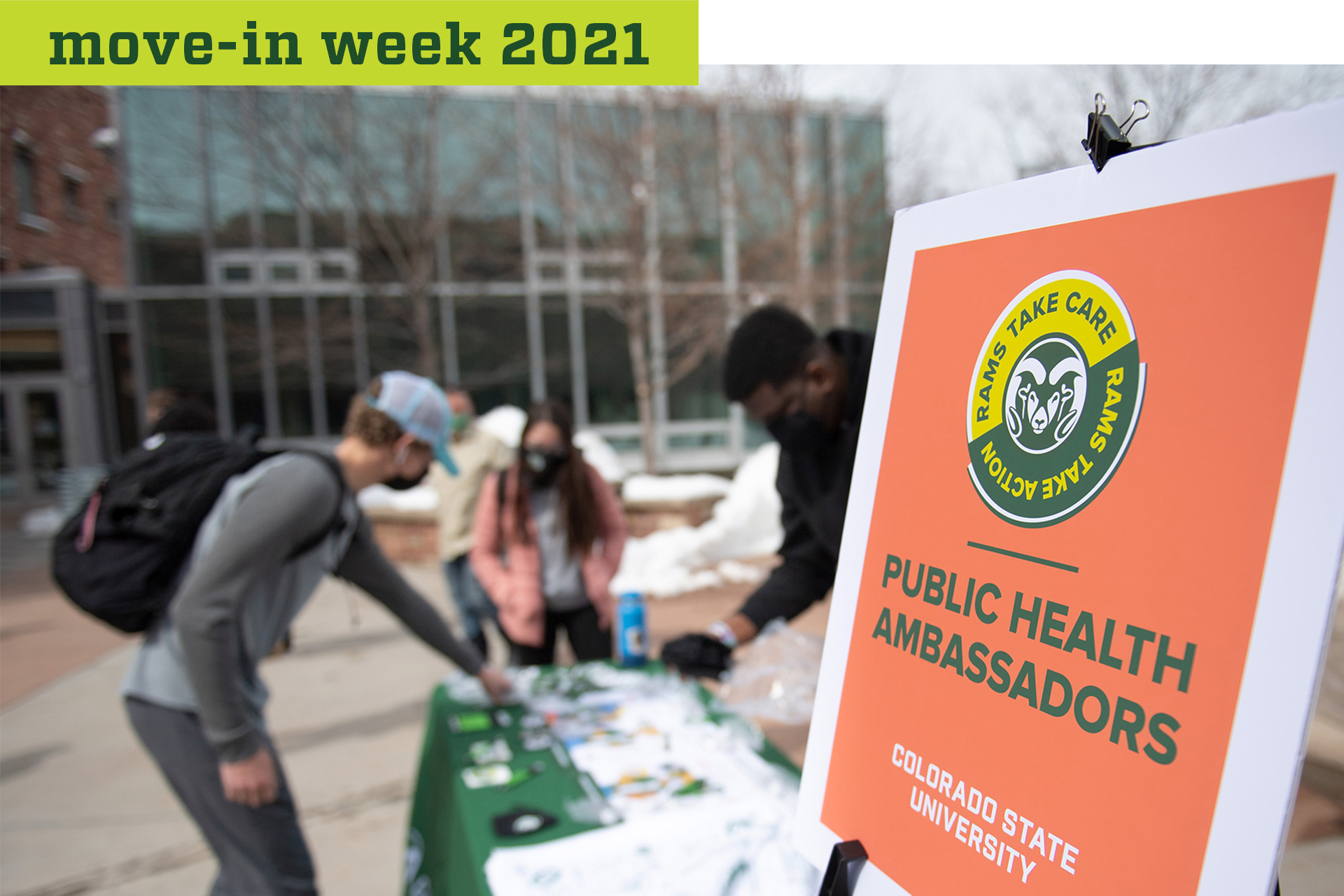
Colorado State University is continuing its popular Public Health Ambassadors Program, designed to promote public health behaviors to help stop the spread of COVID-19.
Students participating in the program have been stationed in key areas throughout campus during Move-In Week, sharing important information about mask wearing, vaccines and other public health behaviors. The innovative student-to-student program will continue throughout the fall semester, according to university leadership.
Public Health Ambassador Joseph Paddock, an undergraduate biology student in the College of Natural Sciences, said that the ambassadors serve as a resource to students, providing important information about university policies.
“We would just love for people to come and talk with us, ask questions and become informed,” Paddock said. “Our whole purpose on campus is to (help students become) knowledgeable about everything going on, and the best way we can do that is through human interaction. Plus, they could get the goodies we always have on us.”
This semester, 19 public health ambassadors will be sharing information and giving out CSU-branded face masks, stickers, notebooks, drawstring bags and more, according to Ali Raza, assistant director of involvement, who manages the program with Tyler Alvarado, coordinator for residential curriculum.
Raza said that the ambassadors, who have been trained by university leadership, will be stationed at the Lory Student Center and Morgan Library as well as Campus Recreation and University Housing locations. They also will periodically be on CSU’s Instagram.
“We are incredibly proud of how our Public Health Ambassadors showed up in the midst of an ongoing crisis and pandemic,” Raza said. “Whether it’s been tabling, doing Instagram takeovers, daily observation rounds across campus, handing out face masks and swag, or answering any questions students, staff, faculty or community members had, our Public Health Ambassadors have been everywhere.”
Peer-to-peer education
The Public Health Ambassadors Program launched in Spring 2021 from CSU’s Social Norming Task Force, a committee of more than two dozen faculty, staff and students charged with correcting misperceptions students may have involving public health behaviors.
Social Norming Task Force Co-Chair Jody Donovan, the assistant vice president for Student Affairs and dean of students, explained that peer-to-peer education is a fantastic vehicle to share important information about COVID-19.
“There’s a lot of scholarly research supporting the power of peer-to-peer education, especially focused on health issues on college campuses,” she said. “Our PHAs know the current lingo and slang, communication patterns and technology to reach their peers. They are physically present with their peers they’re educating so they can do ‘real time’ peer education instead of scheduled, forced, presentations.”
Donovan, who co-chairs the task force with Laura Giles, associate executive director of Housing and Dining Services, added that many of the students in the program are majoring in health-related areas and want to go into a health-related profession. The Public Health Ambassadors meet weekly to discuss what they are seeing and hearing on campus and develop effective strategies to educate their peers, she said.
As Move-In Week continues, Public Health Ambassador Madison Bolte, an undergraduate biology student in the College of Natural Sciences, said that she is looking forward to meeting new students at Ramapalooza as well as providing answers to their questions during the transition from online to in-person classes.
“I am excited to continue providing support and information to students, staff and families about the constantly changing COVID-19 pandemic, and CSU’s current guidelines to combat the virus,” she said, “as well as engaging with the community and offering educational resources.”